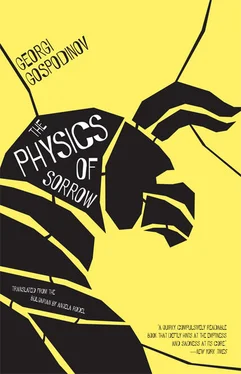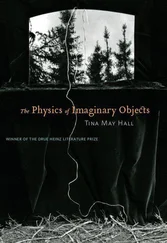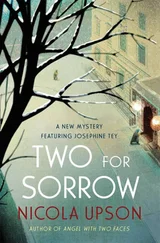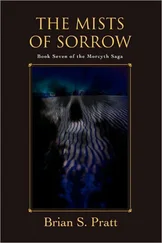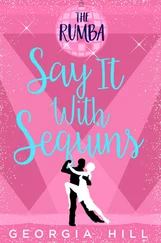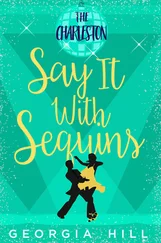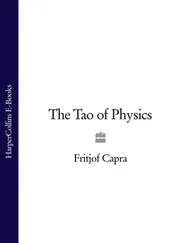A marlin can be destroyed but not defeated.
.
Muria (that’s how she spelled her name, with a “u”), a fishing fanatic:
“In the morning, when I get up, I imagine what I’d like to eat if I were a fish, and that’s how I sense what’ll make them bite during the day. The whole trick is to turn yourself into a fish for a while. And you’ll get hungry. Sometimes you’re hungry for a worm, sometimes for corn, sometimes for a fly. And when I figure out what it wants to eat, what I want to eat that day, I stick it on the hook, cast it out into the water and start reeling them in like crazy. To the horror of the other fishermen, who had been laughing at me just a few minutes earlier. Then I toss the fish back right in front of their eyes. Which makes them all the more furious.”
“Ugh, do you really feel like eating a worm first thing in the morning?”
“When I’m a fish, a worm is not to be missed.”
.
“The history of the world can be written from the viewpoint of a cat, an orchid, or a pebble. Or lamb’s ear.”
“What’s lamb’s ear?”
“A plant.”
“And do you think we would figure in a history of the world written by lamb’s ear?”
“I don’t know. Do you think lamb’s ear figures in the history of the world written by people?”
BUFFALO SHIT, OR THE SUBLIME IS EVERYWHERE
I remember how we walked through a historical town famous for its Revival Period architecture, uprising, fires, cannons made from cherry-tree trunks, history rolled down the narrow streets but my father was impressed mainly by the geraniums on the window sills, praising aloud those who had grown such flowers. Suddenly he stopped in a street and started hovering over something on the ground. I went to see what he had discovered. A pile of buffalo shit. It was standing there like a miniature cathedral, a church’s cupola or a mosque’s dome, may all religions forgive me. A fly was circling above it like an angel. It is very rare to see buffalo shit nowadays, my father said. No one breeds buffalos here anymore. And he spoke with such delight about how one could fertilize pumpkins with it, plaster a wall, daub a bee hive (of the old wicker type), how one could use it to cure an earache — you should warm it well and apply it to the ear. At that moment I would have agreed that the Revival-Era houses we were touring and the pyramids of Giza were something much less important than the architecture, physics, and metaphysics of buffalo (bull?) shit.
Even if you weren’t born in Versailles, Athens, Rome, or Paris, the sublime will always find a form in which to appear before you. If you haven’t read Pseudo Longinus, haven’t heard of Kant, or if you inhabit the eternal, illiterate fields of anonymous villages and towns, of empty days and nights, the sublime will reveal itself to you in your own language. As smoke from a chimney on a winter morning, as a slice of blue sky, as a cloud that reminds you of something from another world, as a pile of buffalo shit. The sublime is everywhere.
SOCRATES ON THE TRAIN
If everything lasted forever, nothing would be valuable.
— Gaustine
The world is set up in such as way that it looks obvious and irrefutable. But what would happen if for a moment we turned the whole system upside down and instead of the enduring, the constant, the eternal, and the dead, we decided to revere that which is fleeting, changeable, transitory, yet alive?
The train was passing through the hot stubble fields in late August, where they still use that barbaric method of stubble burning. The fields had been reaped and to make for easier plowing afterward, someone had set a match to them. I imagined the meadow birds’ scorched wings, the running and squealing mice and rats, the burned up lizards and snakes. Storks were anxiously circling above the burning fields — we’ve got to get out of here ASAP, ASAP. Everyone wanted to run away, the world was heading toward autumn. At the same time, I was returning to the town of T.
In the end, man, if we still insist on seeing him as the measure of all things, is closer to the parameters of the fleeting — he is changeable, inclined toward death, alive, but mortal, perishable, constantly perishing.
I sensed that my imagination was running wild, I needed an opponent. I invented an opponent, clever, with a sharp rhetorical bite, I generously endowed him with qualities and gave myself over to my favorite pastime, Socratic spats.
“So, my dear sir, you propose that we replace the lasting with the fleeting,” my opponent began.
“I suggest that we examine this possibility.”
“Very wellll. Just say it aloud and you will hear how absurd it sounds — to replace the lasting with the fleeting. Illustrate it with a concrete example, isn’t that what you always love to say, my dear fellow? Now then, imagine a nice, sturdy house on the one hand, and a tumbledown hut on the other. Would you exchange the house for the hut? In one hand, I’m holding gold, in the other straw. Which would you choose? Won’t the straw grow moldy after the first rain?”
“Wait, wait, my most noble opponent. You speak wisely and take shameless advantage of your right to peek into my own misgivings. Yet let us look at the other side as well. Imagine a world, in which everyone agrees to a new hierarchy. In which the Fleeting and the Living are more valuable than the Eternal and the Dead. The opposite of the usual world, which we share today. And so, let us imagine what consequences this might have. Immediately many of the reasons for war and theft fall away. That which entices one to theft is that which is eternal or at least lasting, like a bar of gold, for example, or sturdy houses, cities, palaces, land. That is what’s ripe for the taking. No one goes to war over a pile of apples or lays siege to a city for its fragrant, blossoming cherry trees. By the time the siege is over, the cherry trees will have lost their blossoms, and the apples will have rotted.
“And since gold will have lost all of its agreed-upon value (because that’s exactly what it is, a contract value), it’ll just be rolling around on the ground and no one will think to up and go on a crusade for it.
“And speaking of crusades, let’s look at that side of the question as well. The religions that stand behind every crusade or holy war will suddenly have the rug pulled out from under them. The old gods were the Gods of the Eternal in all of its aspects. Is there a God of the Ephemeral? If there are Gods in the new constellation — and why not? — they will be exactly that: Gods of the Ephemeral. Gods of the Fragile and the Perishable. And hence fragile and perishable gods. Sensitive, feeling, empathizing. What more can we say? Mortality raises the price and opens our eyes.”
“But isn’t all of that so fleeting and unstable. ”
“You’re fooling yourself. Let’s take that straw, which you’ve been clutching in your left hand since the very beginning of our debate. That straw used to be wheat, which used to be seeds, which used to be wheat, which used to be. And here, nota bene : the perishable reproduces itself. And that is its first advantage. While the gold, which you’ve been holding in your right hand, is made once-and-for-all, it won’t give birth to gold even if you plant it and water it every day for two hundred years. Let me put it like this, paradoxically — the perishable is more enduring, precisely because of its death, than that which is imperishable and cannot reproduce itself.” (I’ve completely forgotten about the opponent I created.) “What do you say to that, my friend?”
“Wellll, what happens to tradition then? To all of art, to your own pathetic scribbling?” (We’ve left politesse behind, my opponent is pissed off.) “Let me ask you this — that book you’re writing, is it on the side of the ephemeral, or does it uphold the values of the eternal? How long do your own words last?”
Читать дальше
